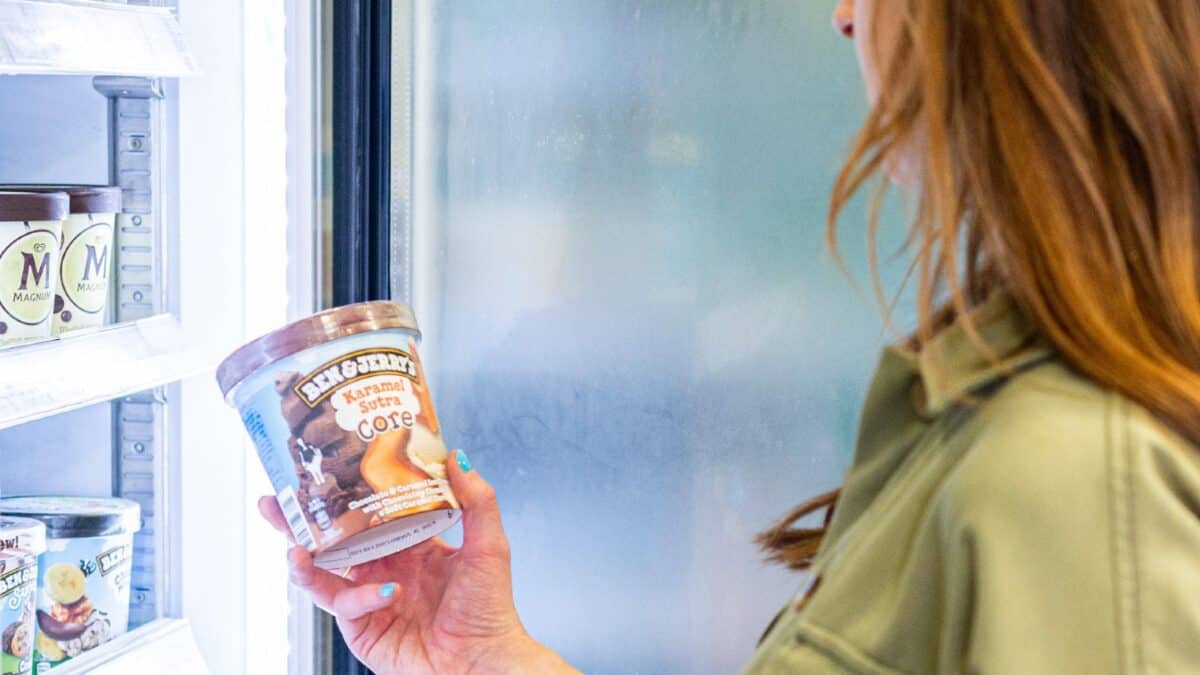Unilever (LSE:ULVR) , a prominent consumer goods company, owns a tremendous number of household names, including Ben & Jerrys, Vaseline, and Walls. The Unilever share price hasn’t exactly been keeping up with some of the biggest market movers, but could the company be a winner as economic uncertainty continues?
Unilever’s recent financial reports showcase a company in robust health. As of the end of 2022, total revenue stood at an impressive £60m, marking a consistent increase over the past four years. This demonstrates the capacity to grow and expand in a challenging economic environment.
According to a discounted cash flow calculation, which calculates an approximation of fair price, Unilever is currently trading at 15.7% below its estimated fair value. I also like to consider the price-to-earnings (P/E) ratio. Unilever has a P/E of 13.6 times, which is notably lower than rivals in the sector.
These strong metrics are further supported by the company’s earnings growth of 42% over the past year, a strong indicator of financial health and potential for future growth.
Despite a fairly healthy-looking balance sheet, there is still a couple of red flags for me. At £29bn, and with a debt-to-equity ratio of 105%, it’s clear that the company is fairly reliant on debt. However, with cash reserves and long-term assets outweighing this, it seems manageable, despite the high interest rate environment we’re currently in.
Slow and steady
Unilever’s share price reflects the company’s steady, if not spectacular, market performance. Currently priced at £39.49, the company has seen a 0.24% increase over the past year. However, it’s worth noting the 16.85% decline over the past three years, indicating some volatility and market challenges.
In terms of risks, Unilever’s earnings are forecast to decline by an average of 1.7% per year for the next three years. This, coupled with an unstable dividend track record and a high level of debt, suggests that potential investors should be cautious and consider these factors.
However, in a time of economic uncertainty, Unilever has been proactive in adapting to market trends and making smart strategic decisions.
Making the right decisions
Unilever has reaffirmed its earnings guidance for the next year. This indicates confidence in the operational strategy and future prospects. This is further bolstered by the decision to sell the Dollar Shave Club, a move that could potentially streamline operations and focus on more profitable segments.
In an effort to continually improve governance and the overall strategic direction, Unilever has announced changes to its board committee composition. Such changes often reflect a company’s adaptability and willingness to evolve in response to internal and external challenges.
Am I buying?
Unilever presents a mixed bag of strong financial performance, market challenges, and strategic initiatives. While growing revenue and the potentially undervalued share price is encouraging, the forecasted decline in earnings and high debt level pose challenges. Nevertheless, Unilever’s recent strategic decisions, including dividend payouts and the sale of non-core assets, showcase a company that is actively managing its portfolio and seeking to create value for its shareholders. I’ll be keeping a close eye on how these strategies unfold, and adding Unilever to my watchlist for now.








